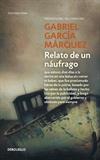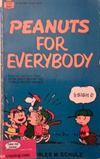
Lolita
3 journalers for this copy...
Sending this one to a fellow bookcrosser
Received this book from AM10000. Will read and release or trade. Thanks!
Just received another copy of this book... I must have arranged two trades/relays.
So I'm marking this one as available - if anyone wants the book, I'll gladly send one, and then I'll also release the other after I read it. :)
So I'm marking this one as available - if anyone wants the book, I'll gladly send one, and then I'll also release the other after I read it. :)
Lolita is one of those books that I knew I should read, but never got around to it. Finally, after two people who I know share my taste in books told me it was their all-time favorite, I moved it to the top of my TBR pile. And it was worth it. Fantastic. If I ever get the rest of the TBR pile under control, I hope to read more by Nabokov.
Sent this book to JesseBC in Illinois yesterday. I hope you enjoy it as much as I did!
Writing from prison where he is held on trial for murder, Humbert Humbert recounts his obssessive passion for 12-year-old Lolita. Fleeing a bad marriage from France to America, Humbert rents a room from Charlotte Haze where he becomes obssessed with Charlotte's daughter, Dolores (aka, Lolita). While Lolita is away at summer camp, Humbert marries Charlotte. When Charlotte discovers Humbert's diaries and their lacivious fantasies about her daughter, she is enraged and runs out into the street where she is struck by a car and killed.
Humbert fetches Lolita from camp, takes her to a hotel where they begin their sexual relationship before he has even told Lolita her mother is dead. He then takes Lolita on a year-long journey across the US in an effort to avoid the discovery of their relationship and any intervention by the authorities on Lolita's behalf.
At the end of the year, Humbert settles down with Lolita in the town of Beardsley where he sends her to an upscale private school for debutantes. Humbert and Lolita battle fiercely over her allowance and her behavior with boys, culminating in Lolita's insistance that they go back on the road.
Humbert complies and quickly figures out that he and Lolita are being followed. Lolita's suspicious behavior suggests to Humbert that she is complicit in this and her sudden disappearance leads Humbert on a chase to find Lolita and exact revenge on her new lover.
As a novel, Lolita is intriguing on many different levels. The book is so disturbing because Humbert is so decidedly NOT crazy. It's certainly true that age of concent is cultural and that some children (what Humbert calls "nymphets") do radiate a certain
unconscious charm and sexuality.
But don't get stuck in the trap of thinking of this book as about sex or as an apology for child molestation. The real source of Humbert's madness is his narcissism, his obssession with carving Lolita up into body parts in his mind, with the transitory
nature of innocence.
It's a fascinating study of a manipulative abuser who truly believes he loves his victim. Particularly how Nabokov emphasizes Lolita's power in the situation because the abuser needs the abused (possibly for self-definition? Does Humbert even know who he is if he doesn't have a nymphet/victim that he can control
by allowing his obssession with them to, in fact, control him?)
Lolita should never be considered pornography. First because that allows the role of sex to take too much emphasis over other aspects of Humbert's relationship with Lolita and his own wounded psyche. Notice Humbert NEVER describes the sex act in the book. We know a few places where it happens but it's entirely left for us to infer. Porn is never that subtle, not even soft core. This book isn't a masturbation aid; it's the mind of a man so obssessed with the girl he loves that he has made that girl a figment of his own imagination.
Second, the novel doesn't serve the same purpose as pornography. Not just because the book isn't a masturbation aid, but because pornography relies on deceiving its consumer, giving a false impression and false "high" in place of the real experience. Usually with sex -- naughty, dirty scenes that stimulate arousal without any of the real-life messiness of sex (no worries about impotence or being able to orgasm or accidentally being squashed or having your hair pulled by your partner), all the things that make real sex so much fuller and more real than porn images of sex.
Whether Lolita "led him on" depends on how reliable you think Humbert is as a narrator. It struck me that Humbert was scrupulously honest, but deluded by his own narcissism. Which means his facts about Lolita would be meticulously correct, but his interpretation of them would not be.
We have to assume that Lolita was neither innocent nor virginal. Humbert wasn't her first partner and he wasn't even her first adult male partner. Spontaneously and passionately French kissing an adult isn't the usual way teenage girls exhibit their crushes on grown men. Lolita definitely knew how to seduce and how to manipulate (e.g. Humbert denies raping her at first, but by the end of the book believes that he did rape her forcibly as she
claimed; we're never told for sure what the truth is, but Humbert's compulsive personality seems to suggest he isn't hiding any facts, so I concluded from this that Humbert is so obssessed with Lolita that he eventually accepts her accusation as the truth). Knowing to manipulate by accusing a man of rape is not
indicative of a demure and innocent child. This kid not only knows how to play a grown woman's game, she knows how to play a scarlet harlot's game! At age 12!
And this is where it gets sticky and challenges all our ideas about victimhood. Because Lolita is undoubtedly Humbert's victim. The real Lolita (whoever she is) doesn't exist for Humbert. He
sees in her only what he wants to see - the object of his passion and obssession. We assume too easily that victimhood is an either/or proposition -- either one is pure, blameless, and deserving of unqualified sympathy OR one is complicit, guilty, and cannot be considered a victim. Real life is messier than that. And Lolita challenges it. Because she's by no means an innocent little girl, but she is ALSO a victim. The two aren't mutually exclusive.
But I don't see how we can doubt Humbert loves Lolita. This is a guy who can ramble for three pages about the downy hair on his beloved's arm. He's passionately in love with her -- the problem is, he never really SEES her, despite his meticulous recall of every inch of her body. The trouble with a narcissist is that they can't see anything except through the filter of themselves and in relation to themselves.
I suppose it's possible to argue then that a narcissist isn't capable of real love. But I think that would be a dismissive by-product of our therapeutic culture that likes to box every human experience into neat, diagnosable packages. Mostly for our own comfort -- if THEY are crazy, it means *I* am not. And it's not that simple. Granted, we aren't all capable of child molestation nor as extreme as Humbert, but we're all capable of being so enamored with something that we can't see it for what it really is. Humbert's narcisstic blindness is tragic for both him and for Lolita.
Lolita has been criticized as not only too salacious for the masses, but as an anti-American screed -- Humbert symbolizing Europe and Lolita symbolizing America and the overall story symbolizing Europe victimizing and screwing (literally) America.
Nabokov vehemently denied that he had any anti-American intent in writing Lolita. In fact, he said it pained him to be accused of anti-American sentiment and that he purposely set the novel in the US because the beauty of American landscapes made a good backdrop for Humbert and Lolita's affair. Obviously, he pokes fun of some of the commercial, consumerist, and low-brow aspects of American culture. But only Americans who confuse defensiveness for patriotism would really consider this anti-American.
This novel shouldn't be summed up as "a love story" anymore than it should be summed up as "a sex story". It's both, but it's so much more challenging than either. It's a moving and fascinating exploration power, love, and self-deception.
Humbert fetches Lolita from camp, takes her to a hotel where they begin their sexual relationship before he has even told Lolita her mother is dead. He then takes Lolita on a year-long journey across the US in an effort to avoid the discovery of their relationship and any intervention by the authorities on Lolita's behalf.
At the end of the year, Humbert settles down with Lolita in the town of Beardsley where he sends her to an upscale private school for debutantes. Humbert and Lolita battle fiercely over her allowance and her behavior with boys, culminating in Lolita's insistance that they go back on the road.
Humbert complies and quickly figures out that he and Lolita are being followed. Lolita's suspicious behavior suggests to Humbert that she is complicit in this and her sudden disappearance leads Humbert on a chase to find Lolita and exact revenge on her new lover.
As a novel, Lolita is intriguing on many different levels. The book is so disturbing because Humbert is so decidedly NOT crazy. It's certainly true that age of concent is cultural and that some children (what Humbert calls "nymphets") do radiate a certain
unconscious charm and sexuality.
But don't get stuck in the trap of thinking of this book as about sex or as an apology for child molestation. The real source of Humbert's madness is his narcissism, his obssession with carving Lolita up into body parts in his mind, with the transitory
nature of innocence.
It's a fascinating study of a manipulative abuser who truly believes he loves his victim. Particularly how Nabokov emphasizes Lolita's power in the situation because the abuser needs the abused (possibly for self-definition? Does Humbert even know who he is if he doesn't have a nymphet/victim that he can control
by allowing his obssession with them to, in fact, control him?)
Lolita should never be considered pornography. First because that allows the role of sex to take too much emphasis over other aspects of Humbert's relationship with Lolita and his own wounded psyche. Notice Humbert NEVER describes the sex act in the book. We know a few places where it happens but it's entirely left for us to infer. Porn is never that subtle, not even soft core. This book isn't a masturbation aid; it's the mind of a man so obssessed with the girl he loves that he has made that girl a figment of his own imagination.
Second, the novel doesn't serve the same purpose as pornography. Not just because the book isn't a masturbation aid, but because pornography relies on deceiving its consumer, giving a false impression and false "high" in place of the real experience. Usually with sex -- naughty, dirty scenes that stimulate arousal without any of the real-life messiness of sex (no worries about impotence or being able to orgasm or accidentally being squashed or having your hair pulled by your partner), all the things that make real sex so much fuller and more real than porn images of sex.
Whether Lolita "led him on" depends on how reliable you think Humbert is as a narrator. It struck me that Humbert was scrupulously honest, but deluded by his own narcissism. Which means his facts about Lolita would be meticulously correct, but his interpretation of them would not be.
We have to assume that Lolita was neither innocent nor virginal. Humbert wasn't her first partner and he wasn't even her first adult male partner. Spontaneously and passionately French kissing an adult isn't the usual way teenage girls exhibit their crushes on grown men. Lolita definitely knew how to seduce and how to manipulate (e.g. Humbert denies raping her at first, but by the end of the book believes that he did rape her forcibly as she
claimed; we're never told for sure what the truth is, but Humbert's compulsive personality seems to suggest he isn't hiding any facts, so I concluded from this that Humbert is so obssessed with Lolita that he eventually accepts her accusation as the truth). Knowing to manipulate by accusing a man of rape is not
indicative of a demure and innocent child. This kid not only knows how to play a grown woman's game, she knows how to play a scarlet harlot's game! At age 12!
And this is where it gets sticky and challenges all our ideas about victimhood. Because Lolita is undoubtedly Humbert's victim. The real Lolita (whoever she is) doesn't exist for Humbert. He
sees in her only what he wants to see - the object of his passion and obssession. We assume too easily that victimhood is an either/or proposition -- either one is pure, blameless, and deserving of unqualified sympathy OR one is complicit, guilty, and cannot be considered a victim. Real life is messier than that. And Lolita challenges it. Because she's by no means an innocent little girl, but she is ALSO a victim. The two aren't mutually exclusive.
But I don't see how we can doubt Humbert loves Lolita. This is a guy who can ramble for three pages about the downy hair on his beloved's arm. He's passionately in love with her -- the problem is, he never really SEES her, despite his meticulous recall of every inch of her body. The trouble with a narcissist is that they can't see anything except through the filter of themselves and in relation to themselves.
I suppose it's possible to argue then that a narcissist isn't capable of real love. But I think that would be a dismissive by-product of our therapeutic culture that likes to box every human experience into neat, diagnosable packages. Mostly for our own comfort -- if THEY are crazy, it means *I* am not. And it's not that simple. Granted, we aren't all capable of child molestation nor as extreme as Humbert, but we're all capable of being so enamored with something that we can't see it for what it really is. Humbert's narcisstic blindness is tragic for both him and for Lolita.
Lolita has been criticized as not only too salacious for the masses, but as an anti-American screed -- Humbert symbolizing Europe and Lolita symbolizing America and the overall story symbolizing Europe victimizing and screwing (literally) America.
Nabokov vehemently denied that he had any anti-American intent in writing Lolita. In fact, he said it pained him to be accused of anti-American sentiment and that he purposely set the novel in the US because the beauty of American landscapes made a good backdrop for Humbert and Lolita's affair. Obviously, he pokes fun of some of the commercial, consumerist, and low-brow aspects of American culture. But only Americans who confuse defensiveness for patriotism would really consider this anti-American.
This novel shouldn't be summed up as "a love story" anymore than it should be summed up as "a sex story". It's both, but it's so much more challenging than either. It's a moving and fascinating exploration power, love, and self-deception.
Released 18 yrs ago (6/4/2005 UTC) at
WILD RELEASE NOTES:
RELEASE NOTES:
 This Book is Currently in the Wild!
This Book is Currently in the Wild!



